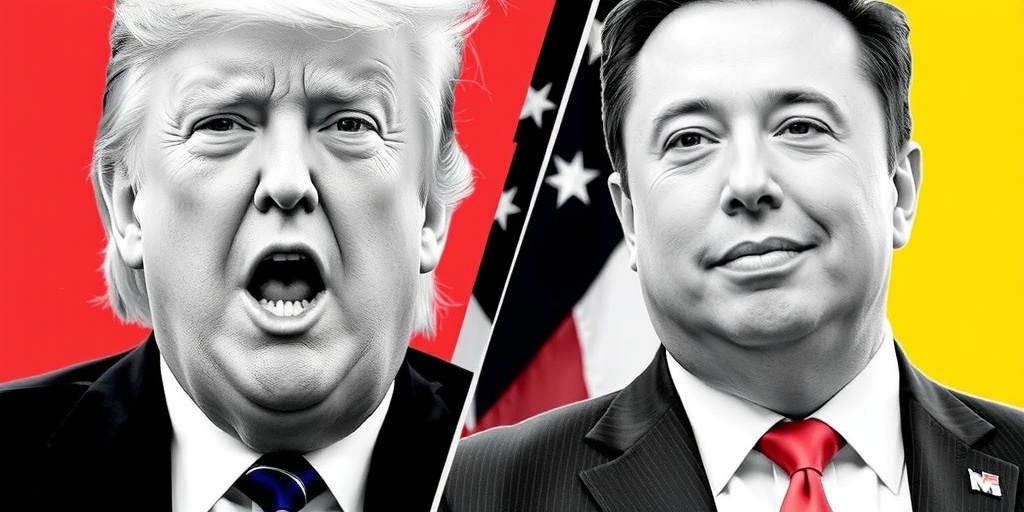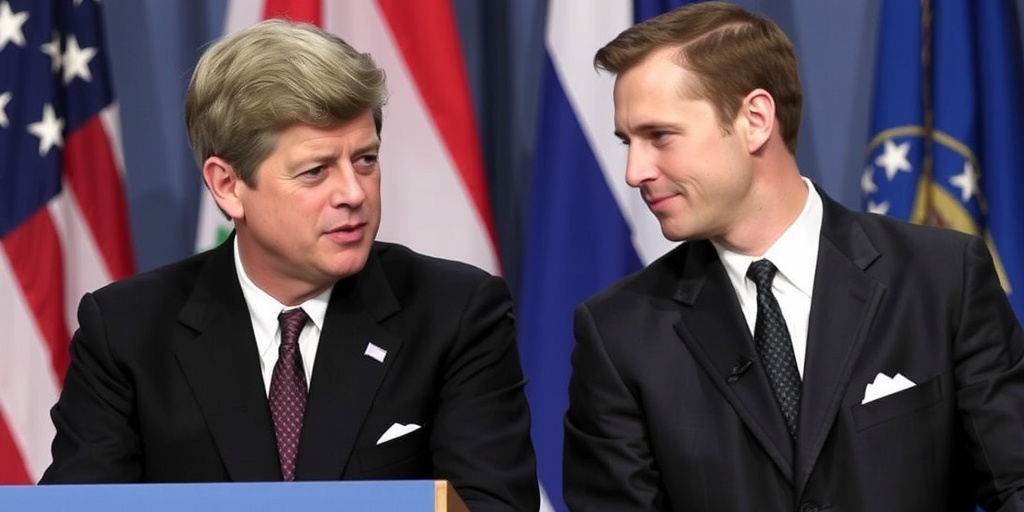Now Reading: Bannon vs. Musk: The Power Struggle Within MAGA
-
01
Bannon vs. Musk: The Power Struggle Within MAGA
Bannon vs. Musk: The Power Struggle Within MAGA

Tension Rises Between Bannon and Musk Within Trump’s MAGA Movement
Following a reported clash within President Trump’s cabinet, tensions between influential figures Steve Bannon and Elon Musk have come to the forefront of the political landscape. Sources indicate that certain members of Trump’s cabinet openly challenged Musk’s growing influence over various departments, inciting a backlash from Bannon, one of Trump’s staunchest allies.
Bannon has been vocal in his criticism of Musk, labeling him a "parasitic illegal immigrant" and a "truly evil person." He recently suggested Musk could be an anchor weighing Trump down, expressing concerns that Musk’s presence might adversely affect the former president’s political standing. During an episode of his podcast “War Room,” Bannon remarked, “I don’t want to say an anchor or lodestone … It’s trending — that is starting to affect everybody.”
This animosity between Bannon and Musk underscores a significant ideological rift within Trump’s Make America Great Again (MAGA) movement. While Bannon represents a grassroots populist agenda, advocating for policies that resonate with working-class Americans, Musk embodies the ultrawealthy elite who wield substantial influence in politics. This dichotomy raises questions about the direction of the MAGA movement and its relationship with affluent insiders like Musk.
Despite the undeniable friction, Trump appears intent on fostering unity among his allies. Reports suggest that in February, he urged Bannon to ease off his attacks on Musk, proposing a private meeting between the two to mend fences. However, that meeting has yet to transpire, leading to speculation regarding its potential impact on the GOP’s dynamics. Trump’s move demonstrates an acute awareness of Bannon’s powerful voice within the MAGA base, emphasizing the delicate balance he must maintain to keep both factions content.
Bannon’s advocacy for a populist agenda is not new; he’s been a prominent figure within the Republican Party since the Tea Party’s rise. He views Musk as an opportunist devoid of genuine ideological commitment to MAGA principles, suggesting that Musk’s motivations are solely self-serving. Conversely, some Republicans criticize Bannon for his alignment with far-right nationalism, a stance that has occasionally alienated parts of the GOP constituency.
Musk’s trajectory into the MAGA realm is notable as well. Once a vocal critic of Trump, he transitioned into one of Trump’s most significant benefactors. Though irritated by Bannon’s barbs, Musk has largely refrained from engaging directly. “Bannon is a great talker, but not a great doer,” Musk remarked on social media, showcasing his dismissive attitude toward Bannon’s critiques.
The White House has remained tight-lipped regarding the internal rift. Press Secretary Karoline Leavitt stated, “We do not comment on private conversations that may or may not have occurred,” emphasizing that Trump’s administration is focused on significant accomplishments, including work attributed to Musk within the U.S. federal framework.
Bannon’s persistent criticisms of Musk might also be construed as strategic, as his supporters assert that he is defending the essence of the MAGA movement. With aspirations for a potential presidential run in 2028 underscored by recent polling, Bannon appears to be positioning himself as a key player in the movement’s future.
The debate surrounding Musk’s role in the GOP reflects broader ideological divisions within the party. Bannon, firmly rooted in conservative principles, views Musk’s stance on issues like immigration and labor as incompatible with his vision for the movement. Musk’s support for high-skilled immigration visas clashes with Bannon’s hardline stance, illustrating a divide that could have implications for voter alignment in upcoming elections.
Despite these tensions, both Bannon and Musk command substantial followings and remain integral to the MAGA movement. Bannon’s history as a pioneer of conservative media through outlets like Breitbart and his impactful “War Room” podcast have solidified his position within Trump’s inner circle. Musk, on the other hand, has emerged as a critical voice on social media platforms, particularly X (formerly Twitter), allowing for broader outreach to conservative audiences.
Recent events, including their appearances at the Conservative Political Action Conference (CPAC), demonstrated that both men can engage publicly without entering direct confrontation. Their popularity within the movement is palpable, with each receiving enthusiastic receptions. Musk notably appeared at CPAC wearing a unique MAGA hat and asserting his evolving political alignments, while Bannon praised Musk, labeling him as “Superman.”
However, Bannon has acknowledged fundamental differences between himself and Musk, describing Musk as a "globalist" who does not align with the populist nationalism that Bannon champions. According to Bannon, "He’s still not a populist nationalist, he’s a globalist. He and I have a chasm that is probably insurmountable."
As the MAGA movement continues to navigate these internal conflicts, the roles of Bannon and Musk remain pivotal in shaping its future. With the 2024 election cycle approaching, the ability of Trump to reconcile these differing factions may serve as a litmus test for the GOP’s unity and direction moving forward.
Stay Informed With the Latest & Most Important News
Previous Post
Next Post
-
 01New technology breakthrough has everyone talking right now
01New technology breakthrough has everyone talking right now -
 02Unbelievable life hack everyone needs to try today
02Unbelievable life hack everyone needs to try today -
 03Fascinating discovery found buried deep beneath the ocean
03Fascinating discovery found buried deep beneath the ocean -
 04Man invents genius device that solves everyday problems
04Man invents genius device that solves everyday problems -
 05Shocking discovery that changes what we know forever
05Shocking discovery that changes what we know forever -
 06Internet goes wild over celebrity’s unexpected fashion choice
06Internet goes wild over celebrity’s unexpected fashion choice -
 07Rare animal sighting stuns scientists and wildlife lovers
07Rare animal sighting stuns scientists and wildlife lovers





















